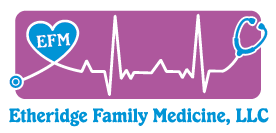Probiotics and you

We often hear and see ads for probiotics. We also know people that are taking probiotics. So, today we will be talking about probiotics, what they are and who can benefit from them.
What are probiotics and what are they for?
Probiotics are living microorganisms that boost health when consumed in adequate amounts. They are so-called “ the good bacteria” in your digestive tract. Your lower digestive tract alone teems with a complex and diverse community of these bacteria. But not all of the bacteria in your body are good for you. Some research suggests that having too many of the “bad” and not enough of the “good” bacteria — caused in part by an unhealthy diet — can wreak all sorts of havoc on your body’s systems. This imbalance can lead to weight gain, skin conditions, constipation or diarrhea, and various chronic health conditions. So, eating probiotic-rich foods, helps us increase the good bacterias in our digestive system.
There are many different types of probiotics, and you can obtain them from foods or supplements.
The right type and amount of a probiotic can help you in several ways:
- Promotes a healthy immune system
- Supports a weight management program
- Prevents occasional diarrhea or constipation.
Where can you find them?
In yogurt, kefir, sauerkraut, tempeh and kimchi, sour pickles, or you can find them in as a supplement in a capsule form at your local pharmacy. One of better-known brands is Align and Culturelle probiotic. Probiotics should not be confused with prebiotics, which are dietary fibers that help feed the friendly bacteria already in your gut.
Consuming yogurt products with probiotic content is a good option if you want to get more probiotics in your diet. When you choose a yogurt, look for the seal “Live and Active Cultures” on the product label. Activia is one of the better-known yogurts out there This indicates that the yogurt has at least 100 million active cultures per gram of yogurt. For other types of probiotic products, how much you should take varies by bacteria type and the reason you’re taking the product. If you choose to take an encapsulated probiotic supplement, a good place to start is with a combination that contains strains from the Lactobacillus family and Bifidobacterium family, because these strains are normally found in the human gastrointestinal tract.
Should I expect any side effects if I do take them?
Probiotics are generally well tolerated and considered safe for most people. However, in the first few days, you may experience side effects related to digestion, such as gas and mild abdominal discomfort. After you adjust, your digestion should begin improving. In people with compromised immune systems, including those with HIV, AIDS and several other conditions, probiotics can lead to dangerous infections.
If you have a medical condition, consult with your doctor before taking a probiotic supplement product.
Ethridge Family Medicine, LLC
January 9, 2019
